Lifelong Aortic Stenosis Management: Life Beyond The First Procedure
Published: 20 April 2022
-
Views:
 9131
9131
-
Likes:
 7
7
-
Views:
 9131
9131
-
Likes:
 7
7
-
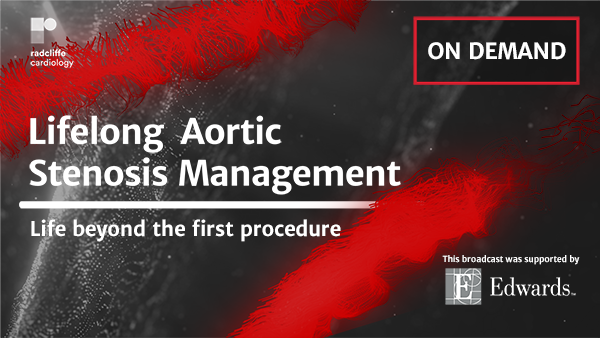 Up Next
Up Next -
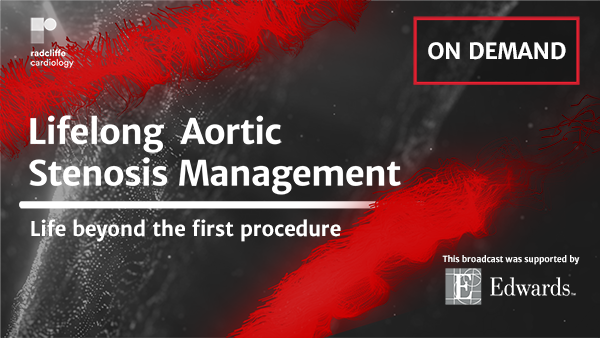 5m 32sPart 1 | Session 3 What did the audience choose and say?
5m 32sPart 1 | Session 3 What did the audience choose and say? -
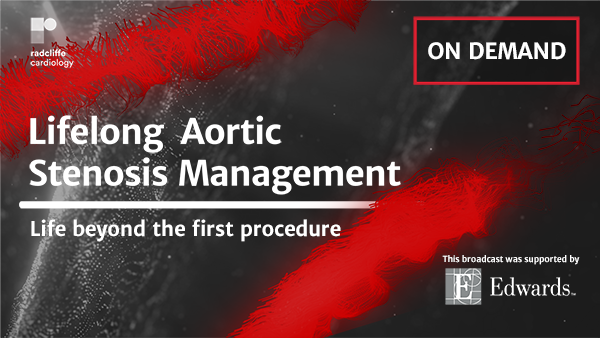 19m 2sPart 1 | Session 4 How was the patient actually treated and why?
19m 2sPart 1 | Session 4 How was the patient actually treated and why? -
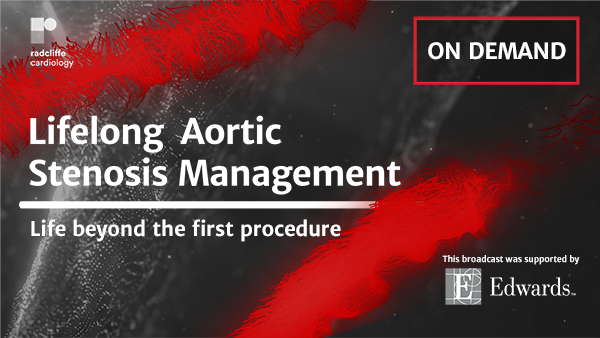 2m 33sPart 1 | Session 5 Case wrap-up and key learnings
2m 33sPart 1 | Session 5 Case wrap-up and key learnings
-
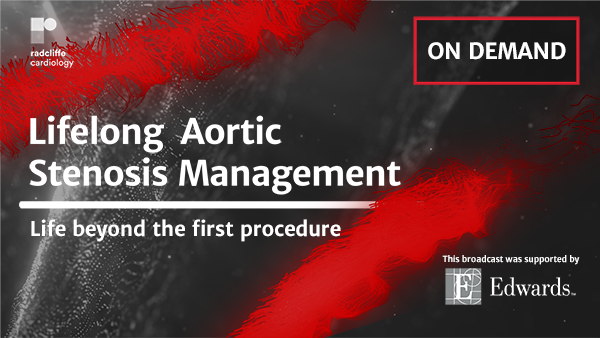 4m 17sPart 2 | Session 1 Part 2 Introduction
4m 17sPart 2 | Session 1 Part 2 Introduction -
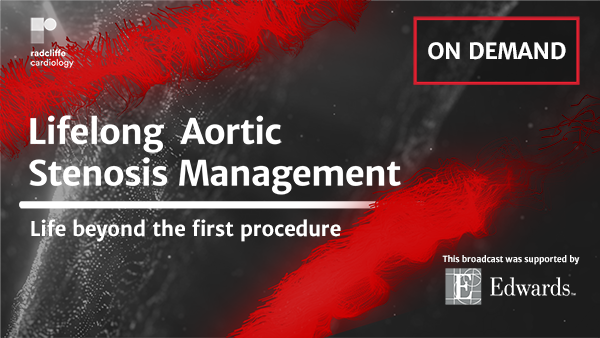 13m 50sPart 2 | Session 2 Case Presentation: Post TAVI Follow-Up
13m 50sPart 2 | Session 2 Case Presentation: Post TAVI Follow-Up -
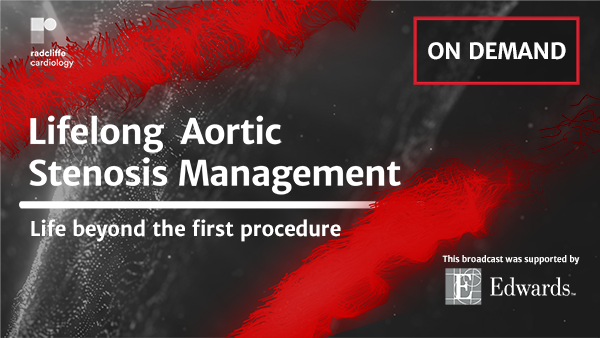 6m 5sPart 2 | Session 3 What did the audience choose and say?
6m 5sPart 2 | Session 3 What did the audience choose and say? -
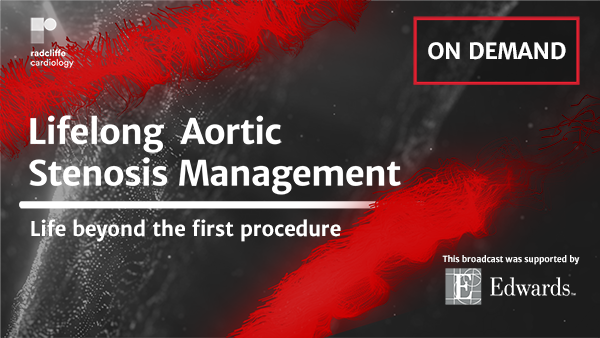 15m 59sPart 2 | Session 4 How was the patient actually treated and why
15m 59sPart 2 | Session 4 How was the patient actually treated and why -
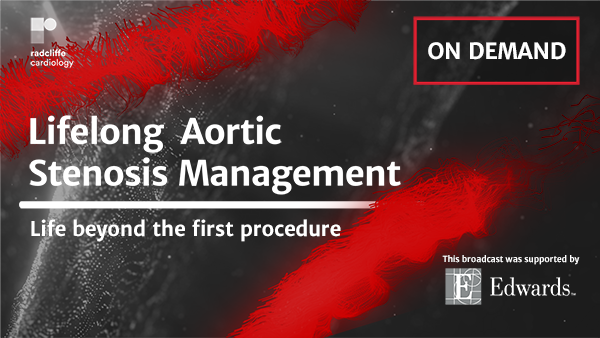 3m 8sPart 2 | Session 5 Case wrap-up and key learnings
3m 8sPart 2 | Session 5 Case wrap-up and key learnings
-
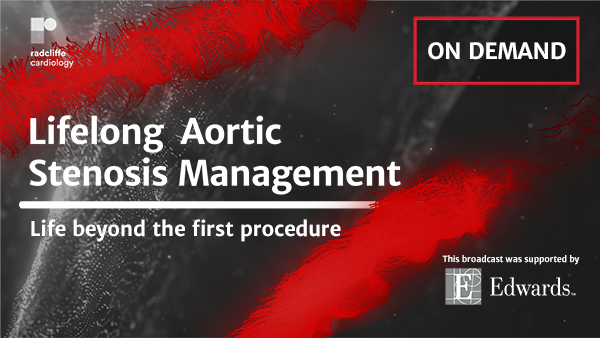 4m 8sPart 1 | Session 1 Welcome and Part 1 introduction Victoria Delgado, Jan-Malte Sinning, Radoslaw Parma, Martine Gilard, Philippe Pibarot, Anne Bernard, David Wood
4m 8sPart 1 | Session 1 Welcome and Part 1 introduction Victoria Delgado, Jan-Malte Sinning, Radoslaw Parma, Martine Gilard, Philippe Pibarot, Anne Bernard, David Wood
Overview
A new interactive format where you play a pivotal role in solving complex cases.
Radcliffe Cardiology – in association with Edwards Lifesciences and Antares Interactive Digital – is delighted to present this innovative educational broadcast In the context of lifetime management.
Bringing together a faculty of international standing, this interactive event aims to best illustrate the challenges encountered and treatment strategies available to interventional cardiologists and the wider Heart Team in the management of the condition.
Delivered in two distinct sections, part one will address selecting the first mode of intervention according to the latest ESC/EACTS Guidelines; the second part will focus on post-TAVI follow-up assessing the potential need for reintervention.
The broadcast has been carefully curated to position audience opinion and interaction at its core – attendees are invited to explore these pertinent topics through reviewing two intriguing and complex cases posted on the broadcast’s Interactive Case Explorer. The Case Explorer has been split into 2 parts, Part 1: TAVI vs. SAVR and Part 2: Post TAVI follow-up, each Explorer referring to each part of the broadcast. These will form the basis for expert panel discussion and analysis.
Chair Dr Victoria Delgado (Barcelona, ES) will be joined by Prof Martine Gilard (Brest, FR), Prof Jan-Malte Sinning (Cologne, DE), Dr Radoslaw Parma (Silesia, PL), Prof Philippe Pibarot (Québec, CA), Prof Anne Bernard (Tours, FR) and Prof David Wood (Vancouver, CA) for what promises to be a truly unique best-in-class virtual broadcast.

Learning Objectives
- Learn how the latest ESC/EACTS Guidelines are implemented within the Heart Team’s practice.
- Identify the most important factors when considering the mode of first intervention for aortic stenosis in the context of lifetime management and the updated 2021 ESC/EACTS Guidelines.
- Understand how echo-derived aortic gradients may affect clinical decision during post-TAVI follow-up.
- Learn about the role of echo-derived aortic gradients in monitoring valve performance.
Target Audience
- Interventional Cardiologists
- General Cardiologists
- Cardiac Surgeons
More from this programme
Part 1
ESC/EACTS VHD 2022 Guidelines: Learning From a Contemporary Case
Part 2
Post-TAVI Patient's Follow-up: Beyond Echocardiography
Faculty Biographies
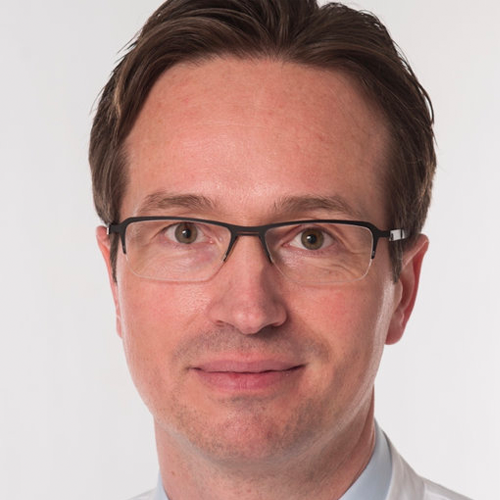
Jan-Malte Sinning
Interventional Cardiologist
Dr Jan-Malte Sinning is an interventional cardiologist and a full professor for internal medicine/cardiology working in the St Vincent Hospital Cologne, DE. He studied medicine at the University of Cologne and completed his residency and fellowship at the University Hospital Bonn, DE.
His special scientific interest includes interventional cardiology with main focus on complex coronary interventions and catheter-based heart valve therapy. He is recognised for his publications in the field of transcatheter aortic valve implantation (TAVI). Dr Sinning's research group is focussing on the diagnosis of heart valve disease especially hemodynamic measurements and biomarkers in patients with aortic stenosis and the pathophysiology after TAVI.





